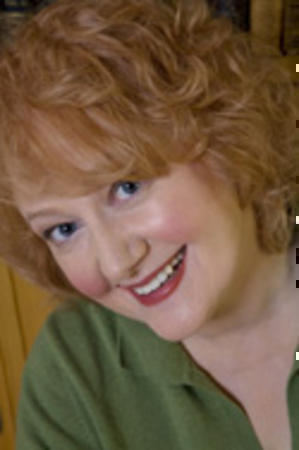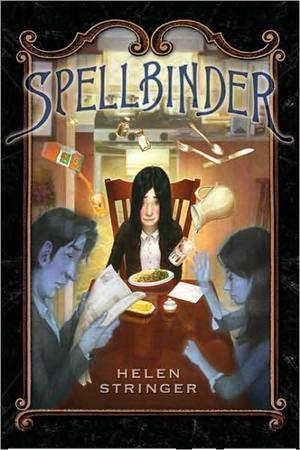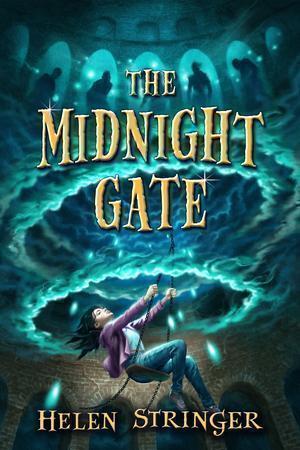
Background — Have you always wanted to write? Why?
I’ve always wanted to tell stories, which isn’t necessarily the same thing. It really all began with telling stories to my sister. She is only fifteen months younger than me and we shared a room so each night I would make up stories and tell them to her. Sometimes they’d be short, but there were times when they’d go on for days. At that time I found it difficult to write them down – it was as if once I’d told them, they were over. I also felt that the things I wrote were never as good as when I just told them out loud. I suspect this was because although I could see them so vividly in my head, I lacked the tools/skills to transfer those inner images to paper. All this changed when I discovered film and got my first camera (I think I was about 13). Now I could just recreate the pictures in my head! The result was that for years my entire focus became film and television. The problem with those media, though, is that a screenplay is never anything more than a blueprint and there are so many things you can’t do in a script – like explore a character’s inner life or even just know what they are thinking. Everything has to be written in the present tense with as little description as possible (because that’s the director’s job). When I returned to writing I found it immensely satisfying to tell a complete story. I enjoyed it so much I didn’t really care whether anything was every published or not!
Why write for middle readers?
I vividly remember being totally absorbed by books when I was that age. I disappeared into the stories and they have colored my outlook ever since. It’s wonderful to be able to go back to that time and those feelings – like having a time machine! Philip Pullman says that he writes for younger readers in part because there is more freedom to explore. Fantasy is a real possibility when you are young, there really could be other worlds and other creatures. It is a time in our lives when anything could happen and we would just accept it. Would our eleven and twelve year-old selves have been surprised to discover fairies at the bottom of the garden? I don’t think so.
Do you have any rituals? Do you write all day? All day?
Heavens, no! I’m a morning person, so I like to get an early start. I usually do two online crosswords (on The Guardian and The Independent sites) and play a couple of games of Scrabble, just to get my brain working. Some days I will write until about 2pm or so, but not usually later than that. Things that I write late in the day or in the evening are usually not very good. I don’t believe in forcing it, though. Some days I might not write at all, or just a sentence or two. If I get stuck I’ll usually go and do something else for a while – solutions to problems seem to come more easily if I’m doing something else.
 Where did the idea for “Spellbinder” and “Midnight Gate” come from?
Where did the idea for “Spellbinder” and “Midnight Gate” come from?
The initial idea for “Spellbinder” was for something much shorter. Years ago I had written a brief story called “The House with Six Turrets and Five thousand Windows” (about a boy who lives in a house that is so big he loses his parents), which was intended as a picture book. I’d forgotten all about it, then rediscovered it in a box of junk. When I re-read it I thought it was okay and had the idea of writing a collection of stories all set in the same strange town. I decided to start with a little girl who could see ghosts because I just suddenly got a picture in my head of a little girl with dark hair sitting on a table tomb. It took off from there, really. The larger ideas about the stories were inspired by the idea of ghosts just being a matter-of-fact part of her life, not something weird and extraordinary. Then, of course, once you accept that ghosts are all around, why shouldn’t other things be here too? Just because we’re told that mythological creatures and the denizens of folk tales are not real, why should that be so? Perhaps they are still all around us and we just don’t notice. Oh, and the real lesson of this whole thing is: NEVER throw anything away!
Did you always have plans for more than one book?
Yes. I really enjoyed series when I was young. Once I got to know the characters in my favorite stories I wanted to know more, to find out what happened next.
Tell me a little about the series.
“Spellbinder” introduces Belladonna Johnson, a shy 12 year-old who can see ghosts. Everyone on her mother’s side of the family has this ability – the ghosts are as real and solid to them as any living, breathing creature. This means that although Belladonna’s parents are dead, she is still able to live at home with them and have a relatively normal life. Then one day all the ghosts in the world vanish, with the single exception of the school’s resident spirit –Elsie, who met her end in a freak tennis accident back in 1912. Belladonna is desperate to get her parents back and soon learns that the disappearance is the work of the dreaded Empress of the Dark Spaces who once almost succeeded in destroying the world and now seeks to return using the spectral power of the ghosts. Belladonna also discovers that she has been chosen as the world’s new Spellbinder, which no one will explain properly, although it does turn out that each Spellbinder is protected by a Paladin. Unfortunately, Belladonna’s Paladin turns out to be none other than Steve Evans, scourge of the chess club and a boy who has never completed a homework assignment in his life. Together with Elsie, Belladonna and Steve travel to the bleak Land of the Dead to save the ghosts and the world.
As the series progresses Belladonna discovers the identity of the woman who became the Empress, but is unable to prevent her getting back to the real world. At the same time she realizes that Steve’s background is not what she had thought. Her new found suspicions make her hold on to the information until it is almost too late – for Steve and everyone else. Meanwhile, the spirit of the Empress has found herself a new vessel and it will take all of Belladonna and Steve’s power, as well as the combined abilities of the Chime Children to return her once more to the Darkness.
There are two main characters in Belladonna and Steve. Why two characters. Was it a conscious decision to make them a boy and girl?
Yes, although at the beginning it was just going to be Belladonna. I soon realized that I needed another character, someone for whom the whole idea of seeing ghosts was something brand new and strange. I thought it should be a boy because he would be a great foil for Belladonna, who is so shy. I selected Steve by looking back at the first chapter and the school trip. There is chaos on the bus and at one point the teacher, Mr. Watson, says: “Now I want – For God’s sake, Evans, give the boy his glasses back!” and I just thought: there’s my boy. The last person someone like Belladonna would ever get to know unless something really unusual drew them together.
How long did you work on it?
Forever! Not really. I wrote a first complete draft fairly quickly but it came in at around 650 pages. At the time I was still looking for an agent and one of them pointed out that it was far too long and needed to be half the length or less. I had a bit of a grumble – you know the sort of thing: “She just doesn’t get it! Lots of books are long! I can’t possibly cut it down!” Then I opened the manuscript at the exact half-way point and had a look at where that was. Then I wrote a whole new final third and sent it off. She seemed surprised that I’d actually taken her at her word, but she is now my agent! After that there were further revisions for her, then once we had a publisher they had suggestions, too. All of the suggestions ultimately made it a much better story, though I think I had a grumble at every one. In answer to your question, though, I’d say the first complete draft took about 8 months, with another 6 months of revisions after that. “Midnight Gate” was much easier to write as by the time I sat down to write that I really knew all the characters and it was clear where they were going.
Who is your favorite character in the book? Why?
That varies, depending upon my mood. I really like Steve. He is such a great foil for Belladonna and I really enjoy writing him and his way of talking and not brooking any nonsense. He has a great deal of bravado and is rather swashbuckling, but there is an undercurrent of sadness in him too that makes him lovable rather than annoying (I hope!). And speaking of annoying…I also really enjoy Elsie. Her gung-ho Edwardian attitude is the exact opposite of Belladonna and she’s great fun to write. I find myself spending ridiculous amounts of time coming up with some of her expressions, though. One of my best resources for her is a book called “Curiosity Kate” that my grandmother won when she was at school in 1912. The story is set at a girls’ boarding school and has been very useful for some of Elsie’s exclamations: Cripes! Top hole! It’s a bit of a rum do! And so forth.
What were the challen ges working on it? And conversely, the highlights?
ges working on it? And conversely, the highlights?
I used to get up early and work on “Spellbinder” before I went to work, so I’d write for about 45 minutes and then have to go. At weekends I could work for more extended periods, but one of the results of working for short bursts was that I would have some difficulty retaining mood and pace. I spent a lot of time reviewing things I’d only just written, which could be frustrating. In writing “Spellbinder” I also found myself questioning whether certain things were appropriate or not. For example, when Steve asks Belladonna to kill him after he has been poisoned by Dr. Ashe. Sometimes I would decide against things, though in that case I did not, as I felt nothing else would really convey how Steve felt. I’ve grown in confidence in this area and don’t second-guess myself quite as much. In “Midnight Gate,” the UK publisher was concerned about Belladonna and Steve being hit but I felt that it was right. The people who hit them (trying not to give too much away, here!) would have done exactly that – there may be ghosts and magic and portals but I want Belladonna and Steve to live in a recognizable world and learn and grow as they go. As to the highlights – everything, really! I absolutely love the research and just telling the stories and seeing all the threads come together. Although I vividly remember writing the first short sentence of “Spellbinder,” I still find myself opening the books, reading random paragraphs and being totally unable to believe that I actually wrote it!
What do you hope kids will get out of your books?
A sense of adventure and curiosity. All the creatures and most of the places in the books are based in reality rather than just invented. If someone is interested in, say, the Cumaean Sibyl, I would like them to be able to go away and discover that the story about the grains of sand is true and that she really did just get older and older until there was nothing left but her voice. Belladonna and Steve are adventurous but not stupid, they try to do the right thing and involve the adults first, but don’t hesitate when it becomes clear that everything depends on them. They are nervous and doubtful as well as brave and ingenious. They use everything at their disposal to figure out how to approach things, whether it’s going to the library and looking stuff up in books or traveling through the Land of the Dead to find the Queen of the Abyss (which really was the title of the ruler of the ancient Sumerian underworld – the ancient Sumerians and Mesopotamians were really good at naming things!).
Looking back, how has your writing evolved from when you first started until now?
I suspect a lot of people, when they first start writing, feel that the language they use when they write has to be different, elevated somehow, from the language they use every day. I think that I certainly felt that way and perhaps that was why it took me so long to actually write something and finish it. I’d read things back and discard them, disappointed. It wasn’t until I relaxed and just wrote the way I spoke that it all came together for me. I used to have a terrible time just describing things. Conversation was fine, I always found the rhythms of speech easy to recreate, but my attempts at telling the reader what a house or a cup or a dog actually looked like would founder on misguided attempts to be “literary.” By the time I started to work on “Spellbinder,” I really had no expectations and just wrote for myself. It was truly liberating to rediscover the person who told my sister stories at bedtime all those years ago and finally recognize my own voice in my work.
Did you have a favorite book or book that really resonated with you as a young reader?
Lots! One of the earliest books I really enjoyed was “Through the Looking Glass.” I remember sitting on the stairs at my grandmother’s house and reading it straight through. (The Jabberwocky is still the only poem I know by heart!) I enjoyed it much more than “Alice In Wonderland.” That may have been because of the whole backwards/reflection thing, which was fun, but I also really enjoyed the characters – particularly the Red Queen. There’s quite a bit of the Red Queen in the Queen of the Abyss! I also consumed all the Narnia books but remember feeling very angry and betrayed when I realized it was all a religious allegory. It wasn’t the religion that bothered me (I loved and still love Paul Gallico’s “The Man Who Was Magic”) but the fact that I felt a trick had been played. Oh, and Susan was treated abominably! What was she supposed to do – become a nun!? My favorite writer in the fantasy genre when I was young was undoubtedly Alan Garner. His characters lived in a world I recognized, a city rather than some big old country house, and yet they still had magical adventures. I know he’s not as well known in the US as in the UK, but I really recommend his books. “The Weirdstone of Brisingamen” and “Elidor” are two of my favorites and would be a great place to start.
